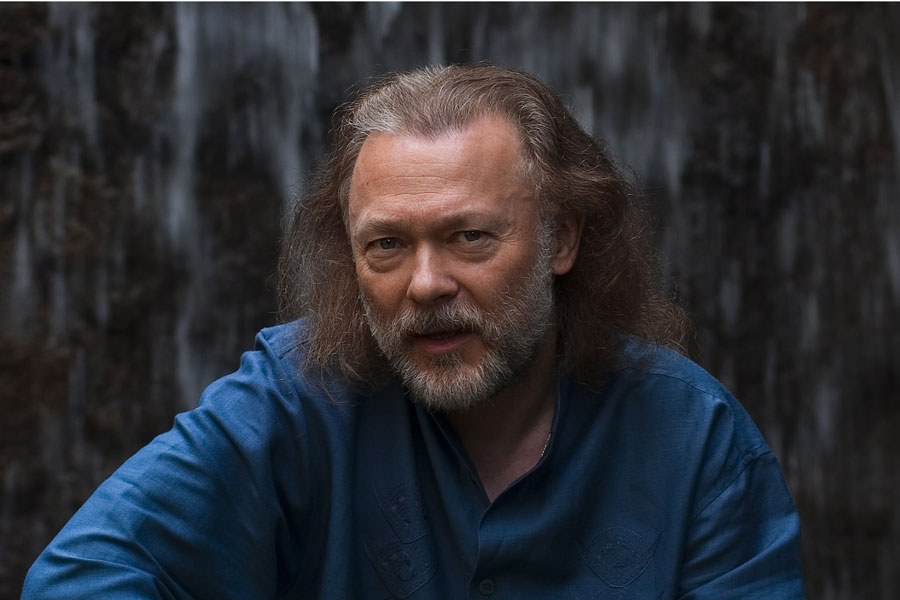Marek Bałata is a vocalist, from the Eastern European realm of improvised music, who is additionally engaged in graphic design and theatre. He has performed and recorded with Polish jazz musicians, including Tomasz Stanko and Zbigniew Namyslowski, and has performed in Poland with CANTABILE IN JAZZ featuring Urszula Dudziak, Michele Hendricks, Judy Niemack and Anthony Jackson. Bałata produced an album of compositions entitled Voice Paintings in 1994, in which he took the folkloric roots of his native Kraków and merged them with American blues and bebop as well as the harmonic language of Chopin. He is also a founding member of TRILOGY with American pianist Art Lande and Austrian flute-player Günter Wehinger. The ensemble’s 1997 tour resulted in the trio`s album Trilogy in 1998.
Agnieszka Franków-Żelazny graduated from the University of Wrocław in 2000 with a degree in biology. That year, she founded the Kameralny Chór Akademii Medycznej (Medici Cantantes Choir at the Medical University of Wrocław). In 2004, she received a diploma from the Karol Lipiński Academy of Music in Wrocław, where she studied Music Education and was awarded a diploma in 2005 from the Vocal Department. During this time, she was honoured with the first prize in the National Contest for Choir Conductors. In 2006, she completed the Postgraduate Voice Production and Training Programme at the Academy of Music in Bydgoszcz. Since June 2006, Franków-Żelazny has been the artistic director of the National Forum of Music Choir. In 2008, she was awarded a special prize for conductors from the 39th Legnica Cantat National Choir Contest. Franków-Żelazny became the head of Polish National Youth Choir, which she also founded, in 2013. She completed course work at the Academy of Culture Leaders at the Economic University of Kraków, in 2014 and was distinguished with the Gloria Artis Bronze Medal for Merit to Culture. The following January, she was named the programme director of the Choral Academy of the National Forum of Music. In 2016, Franków-Żelazny was a music curator for the year that Wrocław served as the European Capital of Culture. The album DE PROFUNDIS – Polish Psalms of the 20th and 21st Century with the NMF Choir under her direction was awarded the Fryderyk prize for the best choral, oratorio and orchestra music, 2017. She currently works as an Associate Professor at the Academy of Music in Wrocław.
Joseph Haydn composed the Kleine Orgelsolomesse, or Small Solo Organ Mass, between 1772 and 1796 for the Eisenstadt church of the Barmherzige Brüder. The Barmherzige Brüder was a religious order known for their medical abilities and they held great faith in the healing powers of music. Thus, music occupied a prominent place in their services. Although Haydn did not leave a dated manuscript, the work was undoubtedly composed in the mid-1770s and performed on the feast day of John of God, patron saint of the order. The work was scored for the brotherhood’s modest resources, which included chorus, solo soprano, and an ensemble of two violins and continuo.
Intended for a standard service the Kleine Orgelsolomesse unites standard missa brevis techniques with Haydn’s inventive approach to the genre. The composer shortened the Gloria and Credo by setting lines of text simultaneously and replaced the customary procedures. The Benedictus aria for the soprano is accompanied by strings and obbligato organ, as in the Grosse Orgelsolomesse, prompting the nickname, Kleine Orgelsolomesse. Lastly, in the Agnus Dei, Haydn omits the traditional reiteration of music from the Kyrie, superseding the customary change in character at ‘Dona nobis pacem’ to end the work in the same contemplative mood in which it began.
Alixandra Porembski, English Language Annotator

